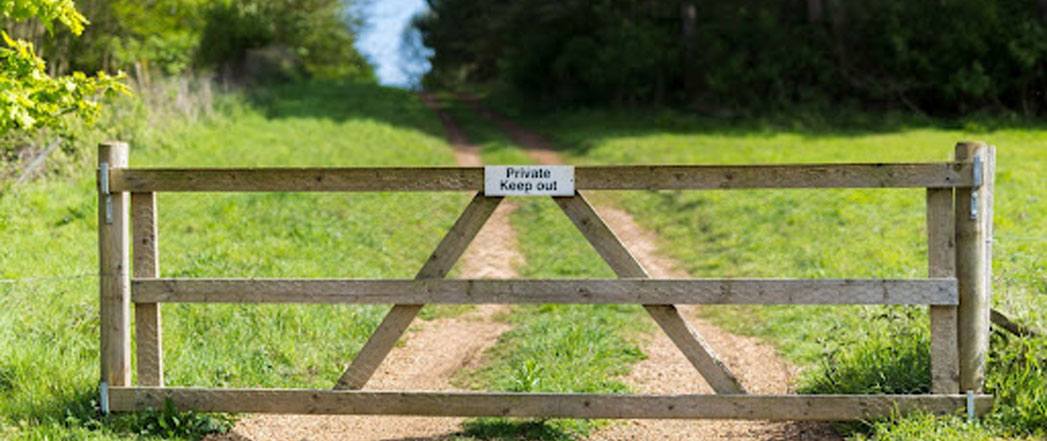When someone suffers an injury when trespassing on someone else’s property, in most cases, they can’t sue for their injuries, but there are some exceptions.

How Georgia premises liability law addresses trespassers hurt on private property
The general rule in Georgia is that property owners don’t owe trespassers a duty of care. If someone is hurt on private property, they usually need to have been invited onto that property in order to file a personal injury lawsuit against the owner. For instance, If a friend invited you to their house, you could potentially take action if you were hurt due to their negligence.
If you were trespassing, the property owner typically doesn’t owe you that same duty of care. However, property owners must notify everyone – trespasser or not – of known hazards, either through a prominent sign or some other warning. Failure to warn of known hazards could result in liability for someone’s injury.
The “attractive nuisance” exception
There are quite a few exceptions to the law when it concerns trespassing. One of them is that if a property has a so-called “attractive nuisance,” such as a pool or a trampoline, then the property owner has the duty to make sure no one can easily access that nuisance. Owners have a higher duty to protect children from potential hazards.
Say, for instance, someone has a pool in their backyard that doesn’t have a fence. If a child wanders onto their property and drowns in that pool, they could be held liable.
Property owners must also make attractive nuisances safe if they expect trespassers. To use the pool example again: if you know children cut through your property on the way to or from school, and you still don’t have a fence around your pool, you’ll be liable if a child is harmed by that pool.
Other examples where property owners could be liable for trespasser harm
Here are a few more situations where a property owner may face liability if a trespasser is hurt.
- The owner gave permission to you, their neighbor, to use their pool at any time. Even though months have gone by, you assume that the invitation still stands. You might be able to sue your neighbor if you were injured.
- The property owner purposely injured a trespasser. While the owner may be protected from criminal charges, the trespasser could possibly file a civil lawsuit against them – especially if the injured person can prove that they didn’t pose any sort of threat to the owner or their family.
- Let’s say you ran next door because you saw a fire in your neighbor’s backyard and you knew no one was home. You put out the fire but you tripped over a hidden hazard, such as some old boards that were covered with a harp. In this instance, you may be able to sue for your injury.
As you can see, this area of the law isn’t quite as cut-and-dried as you might assume. Another complicating factor is a principle of Georgia law known as comparative negligence. If the trespasser is eligible to sue but they played a role in causing the accident that hurt them, that will affect the compensation they could receive. Suppose they had $50,000 in damages, yet they were 90% to blame for what happened, then they would only receive 10% of their damages, or $5,000.
This is completely different from “contributory negligence,” which is the law in some states. Under this principle, the injured party can’t obtain any damages, even if they were 1% at fault.
This is a confusing area of the law. Let us clear up any confusion
If you’re confused regarding which premises liability laws may apply to your case, speak with a Shrable Law Firm attorney as soon as possible. Schedule a free review of your case with one of our skilled Albany premises liability attorneys by calling (229) 349-6291.
Free Case Review
Wrongful Death Claim
$750,000
More FAQ'S
Albany Office Address
Address : 127 N. Westover Blvd. Ste 3 Albany,
GA 31707
Phone: (229)-349-6291


